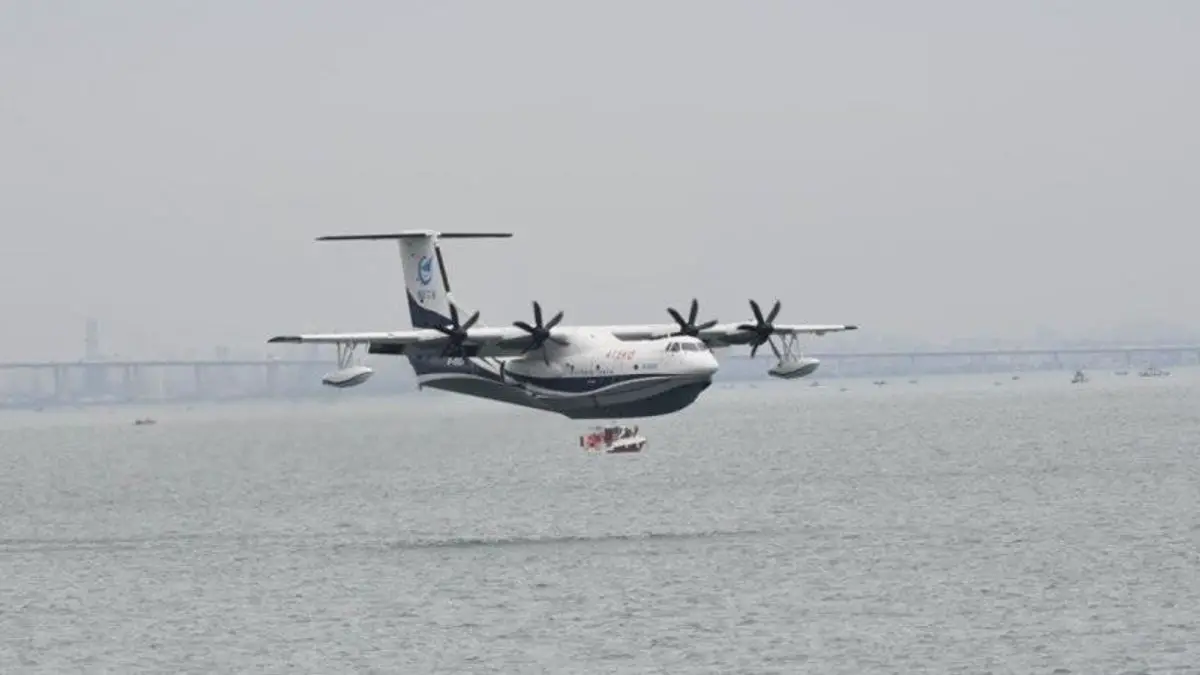China’s AVIC AG600 Kunlong amphibious aircraft has recently showcased its proficiency in maritime rescue operations, marking a significant milestone in its multifaceted role, which includes firefighting capabilities. The demonstration, conducted on April 24, involved the AG600 executing a low-level airdrop of emergency supplies, including a raft, to aid a swimmer lost at sea. The development of the AG600 commenced in 2014, driven by the escalating demand for an agile emergency rescue aircraft capable of combatting forest fires and assisting in maritime search missions. Assembled by China Aviation Industry General Aircraft (CAIGA), this large amphibious aircraft boasts impressive specifications. Powered by four WJ-6 turboprop engines, it possesses a maximum takeoff weight (MTOW) of 53.5 tons, making it one of the largest flying boats in existence.

Despite encountering technological hurdles that delayed its progress in recent years, the AG600 has successfully undergone maiden flights both over land in 2017 and at sea in 2020. The commencement of airworthiness tests in the current year signifies a pivotal step forward in its operational readiness. Featuring a single-body flying boat fuselage and cantilevered high wings, the AG600 is equipped with tricycle retractable landing gear, enabling it to operate from water stretches as shallow as 2.5 meters and conduct operations in Sea State 3 conditions with waves up to 2 meters high. Its primary functions include aerial firefighting, with a water collection capacity of 12 tons in just 20 seconds, and search and rescue missions, capable of retrieving up to 50 individuals stranded at sea.

With dimensions of 39.6 meters in length and a wingspan of 38.8 meters, the AG600’s MTOW of 53.5 tons from paved runways or 48.8 tons from choppy seas underscores its versatility. AVIC asserts its status as the largest amphibious aircraft, surpassing the weights of comparable models such as the Beriev Be-200 and the ShinMaywa US-2. Strategically positioned to access remote atolls in the South China Sea, including the disputed Spratly Islands, the AG600 reinforces China’s presence in contested maritime territories. Its capability to traverse from the city of Sanya to James Shoal in just four hours highlights its strategic significance in asserting territorial claims in the region. As the AG600 continues to demonstrate its prowess in maritime rescue operations and firefighting, it underscores China’s commitment to enhancing its aerial capabilities for emergency response and asserting its presence in disputed territories.











